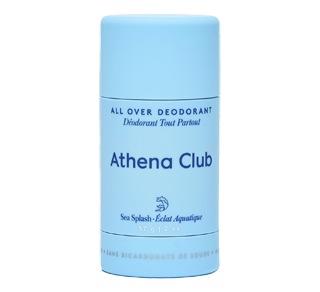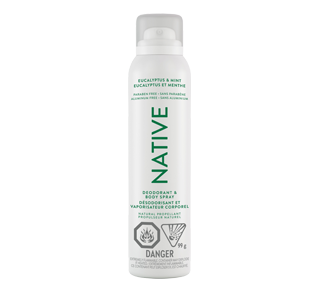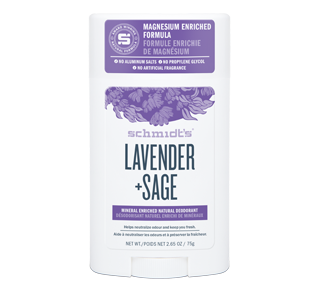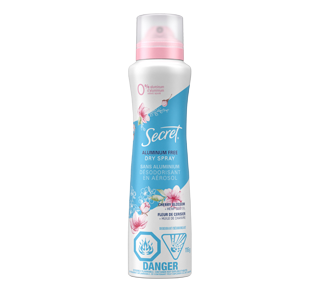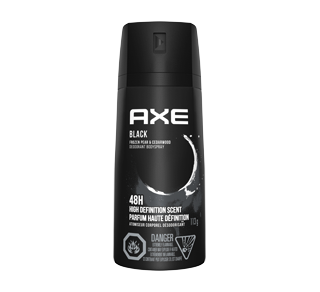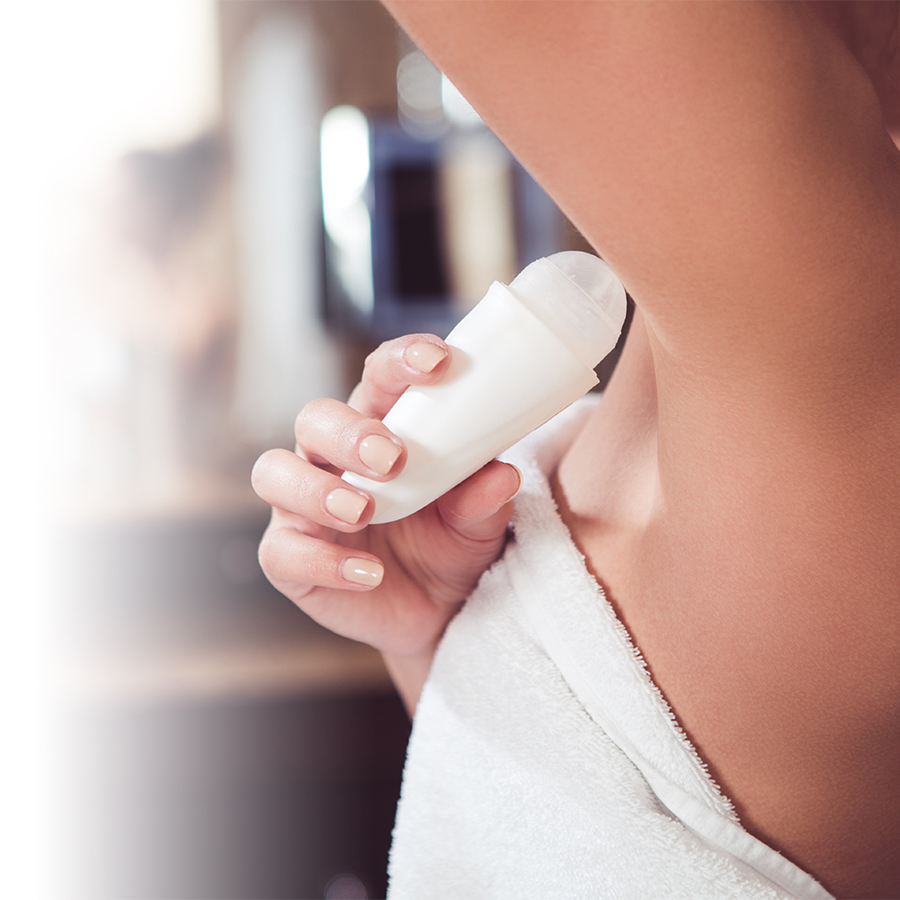Choosing the right deodorant can be daunting! There are literally hundreds to choose from. Ingredients, formula, specific types of action... Here are a few questions to ask yourself so you get the product that meets your needs.
Do I need a deodorant or an antiperspirant?
An antiperspirant is a deodorant; but a deodorant isn't necessarily an antiperspirant.
To be exact, deodorants contain ingredients that mask odours by eliminating bacteria and absorbing moisture—but they don’t block the production of sweat.
Antiperspirants, on the other hand, protect against both odours and perspiration by tightening the pores under your arms to prevent sweat from escaping. They’re the ideal option if you want to avoid wet rings on your clothes.
Why do we sweat?
Sweating is the body's way of reducing excess heat. Most people sweat, to various degrees, every day. Several factors can increase the rate at which you sweat: physical activity, stress, strong emotions, high temperatures, etc.
What type of deodorant is best for me?
There are many types of deodorant on the market and they’re all equally effective. The choice depends on your personal preferences, your needs and your level of comfort with each one.
Spray-on deodorants dry instantly and are a good choice if you're in a hurry, like when you leave the gym and go back to the office.
Roll-ons are easy to apply and protect well against humidity.
Stick deodorants offer highly effective coverage because of their surface area, so they’re ideal for controlling heavy perspiration.
While creamy stick deodorants glide easily over your skin, offering extra protection where you need it most.
What if I want a natural deodorant?
Natural deodorants work just as well as conventional ones because they all contain some type of absorbent powder—like baking soda, cornstarch, clay, etc.—as well as antibacterial ingredients, like essential oils. .
Good to know…
Natural formulas are not antiperspirants, because they don’t block the production of sweat. What’s more, they may need to be reapplied during the day to ensure you maintain that “fresh” feeling.
What’s the right type of deodorant…
...for strong body odours?
Perspiration odour is perfectly natural and not a sign of poor hygiene or ill health. In addition to using a scented deodorant, the following measures can also help control odours:
- Regular underarm waxing to prevent sweat from sticking to hair;
- Wearing loose-fitting clothes made from natural fibres;
- Washing as soon as possible after sweating;
- Washing your underarms once or twice a day as needed;
- Washing your clothes often and dry them completely.
What causes the odour in perspiration?
Sweat itself is basically odourless, containing mainly water, minerals, lactic acid and urea.
The odours are caused by bacteria on your skin that feed on perspiration.
What about excessive perspiration?
The Canadian Dermatology Association estimates that approximately 3% of the population suffers from excessive sweating, or ‘hyperhidrosis.’ And even among those who sweat “normally,” some people sweat more than others.
Why do certain people perspire more than others?
The answer varies from person to person. Several factors may be involved:
- Genetics
- Hormonal changes or imbalances
- Hyperactive sweat glands
- Stress levels
- etc.
If you want a deodorant that’s created for heavier perspiration, you can find them in your pharmacy on the shelves or behind the counter. Just ask your pharmacist.
How to use a specialized antiperspirant…
Apply the antiperspirant to clean, dry skin before you go to bed.
Wash your underarms again the next morning, then apply your usual deodorant.
Repeat daily to begin with, then increase to once or twice a week.
Feel free to speak to your pharmacist for the safe and proper use of this type of product.
What about sensitive skin?
Certain ingredients in deodorants can react with sensitive skin, creating red areas or itching.
Alcohol and aluminum salts can dry out your skin and cause reactions.
Baking soda, an ingredient in some natural deodorants, can also dry out or irritate your skin.
Fragrances are a common irritant found in deodorants, and in cosmetics in general.
If your skin reacts to certain types of deodorants, choose formulas designed specifically for sensitive skin. There are lots of hypoallergenic deodorants out there that don’t contain irritants. Most are fragrance-free, but they still offer long-lasting odour protection.
What to avoid when you have sensitive skin…
Sensitive skin can react to many of the ingredients in cosmetics, like solar filters or preservatives.
Other factors can also increase skin sensitivity or cause reactions:
- pollution
- stress
- certain foods or drinks (e.g. spices, alcohol);
- hormonal changes.
In closing: here are three tips to consider when choosing your deodorant…
Decide what type of product you want and need: a deodorant or an antiperspirant.
Choose the formula you that suits you and offers the highest degree of comfort; but remember: all types of deodorant, including natural ones, are equally effective.
If necessary, choose a product that’s adapted to your specific needs and objectives: masking strong odours, fighting excessive perspiration, caring for sensitive skin, etc.
That’s it: you’ve got everything you need to make an informed choice!

